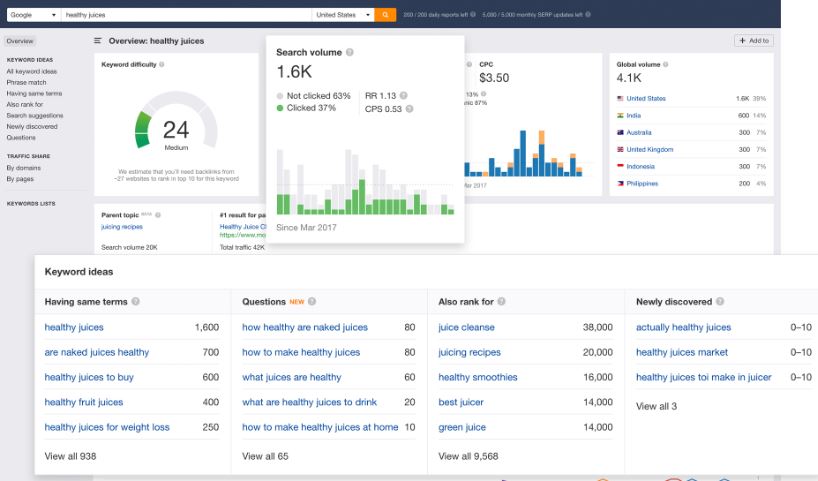Keywords play a vital role in achieving the visibility of any website on search engines due to their significance for search engine optimization (SEO).
Determining which phrases and sequence of words to focus on can be an arduous task, as there are both short-tail and long-tail keywords to consider.
According to one Baltimore SEO company, boosting organic traffic through relevant key phrases will help push a website’s ranking higher within search engine results pages (SERPs).
Keyword research and its significance
Keyword research involves using various methods to identify words and phrases that are most likely to be associated with a particular topic or web page.
This information can then be used for crafting content, selecting relevant domain names, and optimizing web pages in order to improve organic search engine rankings.

How Keywords impact search engine rankings
Search engines use keywords to determine the relevance and quality of websites when giving search results. By optimally placing keywords within webpages, website visibility is increased in SERPs.
Keywords work like an index that helps search engines classify each page of content and rank them based on how useful they are perceived to be.
Quality keywords communicated with higher frequencies in page titles carry even more weight because it significantly increases relevancy and takes into account user intent when they type a query sentence.
Steps to Effective Keyword Research
Brainstorming and identifying the core topic
Brainstorming and identifying the core topic is a critical step for successful keyword research. A detailed understanding of the content, business category, service, product, or purpose of your website is essential to identify high-value keywords that boost search engine visibility.
Analyzing trends within relevant industries can also help determine target audiences which round out a comprehensive initial list of topics for exploration.
Begin broadly with identified primary terms and perform individual research into each for further expansion and inclusive scope in crafting support material throughout the structure.
Utilizing keyword research tools

To effectively use keyword research in SEO campaigns, one must be familiar with the different tools available. A few key ones are Google Keyword Planner, SEMrush, and Ahrefs.
These platforms can assist with discovering optimal keywords related to a chosen topic or products/services as well as explore potential search queries users may have when seeking it out in certain contexts.
The data presented through these sources reveals the level of searches performed for particular words over a period of time; this can influence decisions on where to target web content efforts based on insights gathered from these online tools.
Analyzing competitor keywords
Analyzing competitor keywords allows marketers to gain valuable insight into what terms and phrases their competitors are utilizing for their SEO efforts.
Through careful assessment, it’s possible to identify which search queries competitors are already targeting effectively and use this understanding to inform your own strategy choices.
By analyzing competitive keywords, you can hatch plans that allow you to carve out a unique portion of online footfall by optimizing previously overlooked niches or developing visual content for underutilized searches.
Exploring related and latent semantic keywords
Exploring related and latent semantic keywords is an integral part of doing effective keyword research. Related keywords are terms that carry similar meanings within the broader topic itself, while latent semantic keywords associate concepts contained within a piece of content.
Gaining insight through both types of keywords allows you to create content targeted toward certain user needs more effectively.
Narrowing Down Your Keyword List
Narrowing down your keyword list is an essential part of optimizing it for SEO impact. At this stage of the process, you need to assess search volume and competition levels for each keyword.
Preference should be given to long-tail keywords (those with more words) which are descriptive and can better target specific user intent.
The priority should also lie in selecting keywords that are relevant to your website’s content.
By limiting the set of possible keywords, obtaining generalizable insights about users becomes easier. You can improve the user experience even further by structuring topics effectively toward better ranking performance on various search engines.
Conclusion
Keyword research is an ever-evolving and simple means of giving websites greater visibility in search engine rankings. Effective keyword utilization requires careful strategy at all phases of research – from narrowing a list of possible keywords to leveraging improved content discovery opportunities with long-tail keyphrases.
Webmasters must also learn how to recognize changes in the search landscape and continually update their strategies for continued success amidst evolving conventions.
When dealt with appropriately, pursuing effective keywords will increase website traffic organically and have a lucrative impact on your business performance as monitored through analytics tools over time.


